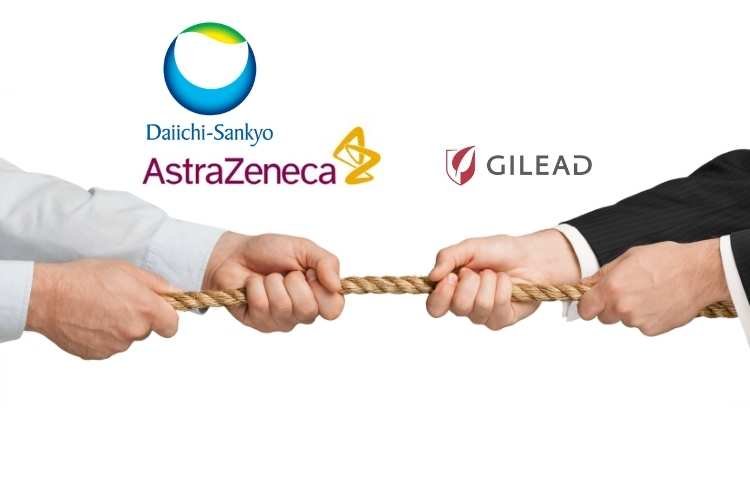AstraZeneca and Daiichi Sankyo are making a strategic move to challenge Gilead Sciences’ position in the breast cancer arena. They have announced their intention to seek regulatory approval for datopotamab deruxtecan (Dato-DXd), an antibody-drug conjugate (ADC), backed by evidence of improved outcomes. However, some uncertainties linger due to the incomplete overall survival (OS) data.
Dato-DXd, the successor to Enhertu, emerged with phase 3 results in non-small cell lung cancer (NSCLC) in July, causing a stir among investors. The initial data set included fatal adverse events and preliminary OS data. Now, AstraZeneca and Daiichi have presented top-line data in the context of breast cancer, where Gilead’s Trodelvy is already approved.
“The positive topline results from TROPION-Breast01 demonstrate the potential for datopotamab deruxtecan to become an important treatment option for patients with HR positive, HER2 low or negative breast cancer in the second-line metastatic setting. We look forward to realizing the full potential of this TROP2 directed antibody drug conjugate across breast cancer subtypes through our ongoing phase 3 program, including two trials in patients with triple negative breast cancer.”
– Ken Takeshita, MD, Global Head, R&D, Daiichi Sankyo
The data emanates from a comprehensive clinical trial involving over 700 patients with inoperable or metastatic HR-positive, HER2-low or HER2-negative breast cancer who had experienced previous treatment failure with endocrine therapy and systemic therapies. Patients were administered either Dato-DXd or single-agent chemotherapy.
Dato-DXd demonstrated a notable improvement in progression-free survival compared to chemotherapy, meeting one of its primary endpoints. The other primary endpoint, focusing on OS, has generated some divergence in AstraZeneca and Daiichi’s press releases. While the releases share a striking similarity, with minor differences in paragraph order, they diverge on one critical point that could sway perceptions of Dato-DXd’s potential and influence stock prices. Both releases acknowledge that OS data are preliminary, but AstraZeneca adds an optimistic note, mentioning the observation of a “trend in improvement.”
With the specific numbers yet to be disclosed, investors and analysts are closely parsing the language for hints about Dato-DXd’s performance, reminiscent of concerns raised earlier when the term “clinically meaningful” was absent from the NSCLC statement. The question of whether Dato-DXd is on track to meet the OS endpoint holds significance as Gilead has associated Trodelvy with enhanced overall survival.
“Today’s TROPION-Breast01 news is a significant development for patients with HR positive, HER2 low or negative metastatic breast cancer whose tumors have become insensitive to endocrine therapy and who currently face poor outcomes. We are encouraged by these positive results.”
– Susan Galbraith, MBBChir, PhD, Executive Vice President, Oncology R&D, AstraZeneca
Further insights will be unveiled when AstraZeneca and Daiichi present the data at an upcoming medical conference. Simultaneously, preparations are underway for regulatory submissions seeking approval for the ADC in breast cancer. AstraZeneca and Daiichi are concurrently exploring Dato-DXd in two additional phase 3 breast cancer trials, with the potential to expand its application to a broader patient population.
The release of the top-line results prompted a 2.7% increase in AstraZeneca’s shares during early trading in London, underscoring the market’s response to this significant development in the world of breast cancer therapeutics.





























